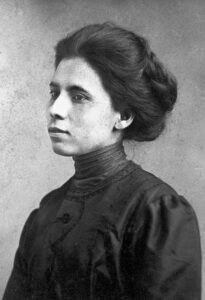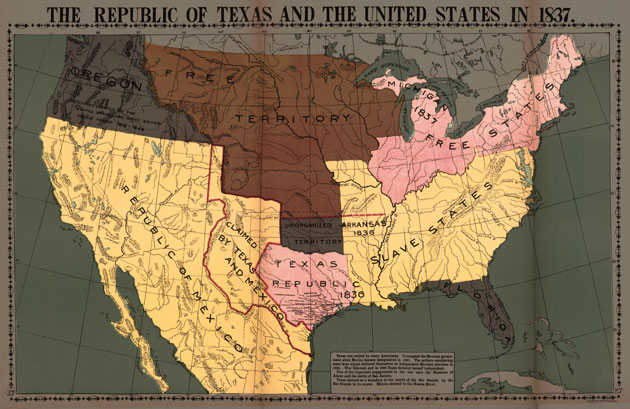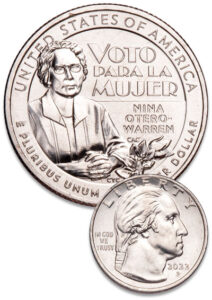The Texas Activism of Jovita Idár

To understand how Jovita Idár of Laredo, TX came to be honored on a 2023 U.S. Women Quarter, let’s go back in time to the early 18th century. As the kings of France and England eyed lands further west of the Mississippi River to expand their empires, military officer-turned-colonizer José de Escandón got busy developing the lower Rio Grande valley for Spain.
For centuries prior to Europeans’ arrival, this was a region inhabited by Indigenous Peoples from tribes affiliated with the Caddo, Apache and Comanche Nations. Escandón named his colony Nuevo Santander after the province where he was born on Spain’s Atlantic coast. In 1755, he established Laredo at a recognized Indian crossing on the river’s north bank.
By 1810, the descendants of Spanish settlers were chaffing under the rule of an overseas monarchy. They launched what evolved into a sustained armed conflict for independence. It lasted 11 years. When it finally ended in 1821, the new nation was called the United Mexican States.
But then, in 1836, the Republic of Texas was formed and seceded from Mexico. That new act of rebellion ignited a border feud. Texas settlers claimed the Rio Grande as their republic’s 1,255-mile-long natural border. They also claimed additional land plus the headwaters of the Rio Grande all the way up into the San Juan Mountains in what is today southern Colorado.

Mexico counter-argued for a common border 200 miles north of the Rio Grande along the Nueces River that gave it more property across an area known as Wild Horse Desert. The result? The short-lived Trans Nueces War led by General Zachary Taylor, who would become our 12th president.
An activist is born
Taylor’s predecessor in the White House was James K. Polk, who spent much of his presidency looking for westward expansion opportunities. So, he annexed the Republic of Texas in 1845. The following year, he declared war on Mexico. In 1848, Polk signed the Guadalupe Hidalgo Treaty, which established the Rio Grande as the border between the two countries. The treaty included the promise of reparations to Mexican settlers who chose U.S. citizenship.
But many believed that treaty’s promise was never fulfilled. Discrimination, educational segregation, poor wages for farm laborers, voting rights, and ethnic stereotyping were main issues. Into the Rio Grande Valley’s increasingly complex history, union organizer Nicasio Idár and his wife welcomed a daughter, Jovita, in 1885.
To make sure she received a solid education, they sent Jovita to Methodist schools. She earned an instructor’s certificate from the Holding Institute in Laredo in 1903. But when Jovita started teaching, she was shocked by the poor condition of the public schools and lack of books. She also expressed disappointment that Mexican children were not learning about their history and heritage in these classrooms.

“Mexican children in Texas need an education. But if they are taught the biography of Washington but not Hidalgo, the exploits of Lincoln but not Juárez, that child will be indifferent to his heritage,” she noted.
By this point, her father had left union organizing to become editor of the Spanish-language newspaper, La Crónica. He broadened its coverage of the economic and social conditions facing Texas Mexicans. After he became publisher and owner in 1910, Jovita, along with two of her brothers, joined him. Together, the Idárs began championing their community’s cultural heritage, exposing racial exploitation and academic segregation, and promoting economic development.
The Mexican Congress
In 1911, Jovita Idár helped her family organize the First Mexican Congress to address social, educational and women’s issues that isolated Mexican Americans from the larger Laredo community. The goals included ways to tackle the lack of economic opportunity and bilingual education for Spanish-speaking children.
In an August 10, 1911 editorial headlined Por la Raza: La Niñez Mexicana en Texas (By Race: Mexican Children in Texas), Jovita wrote: “Mexican children in Texas need an education…. There is no other means to do it but ourselves, so that we are not devalued and humiliated by the strangers who surround us.”
That same year, Jovita found La Liga Femenil Mexicaista (the League of Mexican Women), a feminist organization that provided bi-lingual classes for Mexican-American pupils as well as study classes for adult women and workshops that encouraged them to be financially independent.
Jovita also became a suffragist, campaigning for ratification of the 19th Amendment in Texas that would give women the right to vote. In a December 7, 1911 editorial she wrote: “Working women know their rights and proudly rise to face the struggle. The hour of their degradation has passed… They are no longer men’s servants but their equals, their partners.”

It took eight more years, but in 1919, the Texas legislature ratified the 19th Amendment. The state was one year ahead of neighboring Arizona, where Jovita’s contemporary and like her, a Spanish-speaking descendant-turned-suffragist, barnstormed across another territory the United States had acquired from Mexico to get the 19th Amendment confirmed. In 2022, Nina Otero-Warren was honored on a U.S. Women Quarter.
In addition to gracing the reverse of the latest U.S. Women Quarter, Jovita’s legacy was commemorated in 2005 when the Women’s Media Center in Washington, D.C. was established to showcase original articles, essays and opinions by Latinas, who, like her, are documenting America’s multifaceted history.
SOURCES
Acosta, Teresa Palomo. “La Crónica.” Texas State Historical Association, March 1, 1995; updated August 7, 2020. https://www.tshaonline.org/handbook/entries/la-cronica
Advisory Council on Historic Preservation. “Laredo, Texas.” Accessed June 27, 2023. https://www.achp.gov/preserve-america/community/laredo-texas
Alexander, Kerri Lee. “Jovita Idár (1885-1946).” National Women’s History Museum. Accessed June 2, 2023. https://www.womenshistory.org/education-resources/biographies/jovita-idar
Humanities Texas. “Jovita Idár.” Accessed June 2, 2023. https://www.humanitiestexas.org/programs/tx-originals/list/jovita-idar
Library of Congress. “Mexican American Migrations and Communities.” Accessed June 2, 2023. https://www.loc.gov/classroom-materials/mexican-american-migrations-and-communities/
Museo Del Westside. “Jovita Idár (1885-1946).” Accessed June 2, 2023. https://www.museodelwestside.org/women-activism/jovita-idar
National Archives. “Treaty of Guadalupe Hidalgo (1848).” Accessed June 27, 2023. https://www.archives.gov/milestone-documents/treaty-of-guadalupe-hidalgo
New York Historical Society: Women and the American Story. “Life Story: Jovita Idár Juárez (1885–1946)”. Accessed December 5, 2022. https://wams.nyhistory.org/modernizing-america/xenophobia-and-racism/jovita-idar-juarez/
PBS. “Jovita Idár: Mexican American Activist and Journalist.” Accessed December 5, 2022. https://www.pbs.org/wnet/americanmasters/jovita-idar-mexican-american-activist-and-journalist-e6zgar/15329/
Re-Imagining Migration. “Teacher, Journalist, Activist: Jovita Idár.” Accessed June 2, 2023. https://reimaginingmigration.org/teacher-journalist-and-activist-jovita-idar/
Women in Texas History. “Jovita Idár.” Accessed June 2, 2023. https://www.womenintexashistory.org/biographies/jovita-idar/
Women’s Media Center. “Women’s Media Center Launches IDAR/E – New Feminist Latina Digital Channel.” September 20, 2020. https://womensmediacenter.com/about/press/press-releases/launching-i-dare
Wood, Lamont. “The Forgotten Trans-Nueces War: How the Border Got on the Rio Grande.” January 18, 2015. The San Antonio Report. Accessed June 26, 2023. https://sanantonioreport.org/forgotten-trans-nueces-war-border-got-rio-grande/#:~:text=The%20Mexican%20government%20insisted%20the,turn%20Texas%20into%20an%20empire



